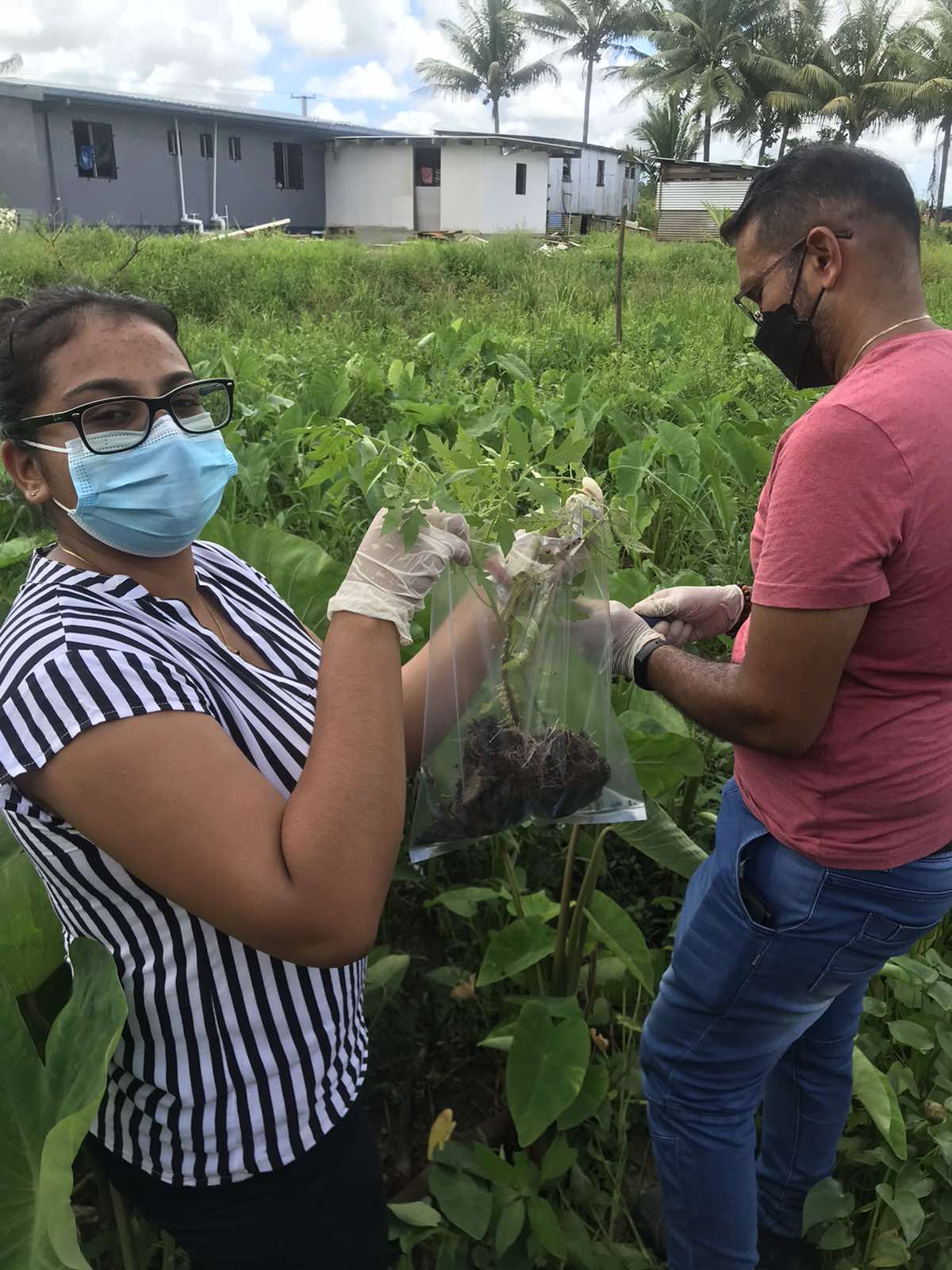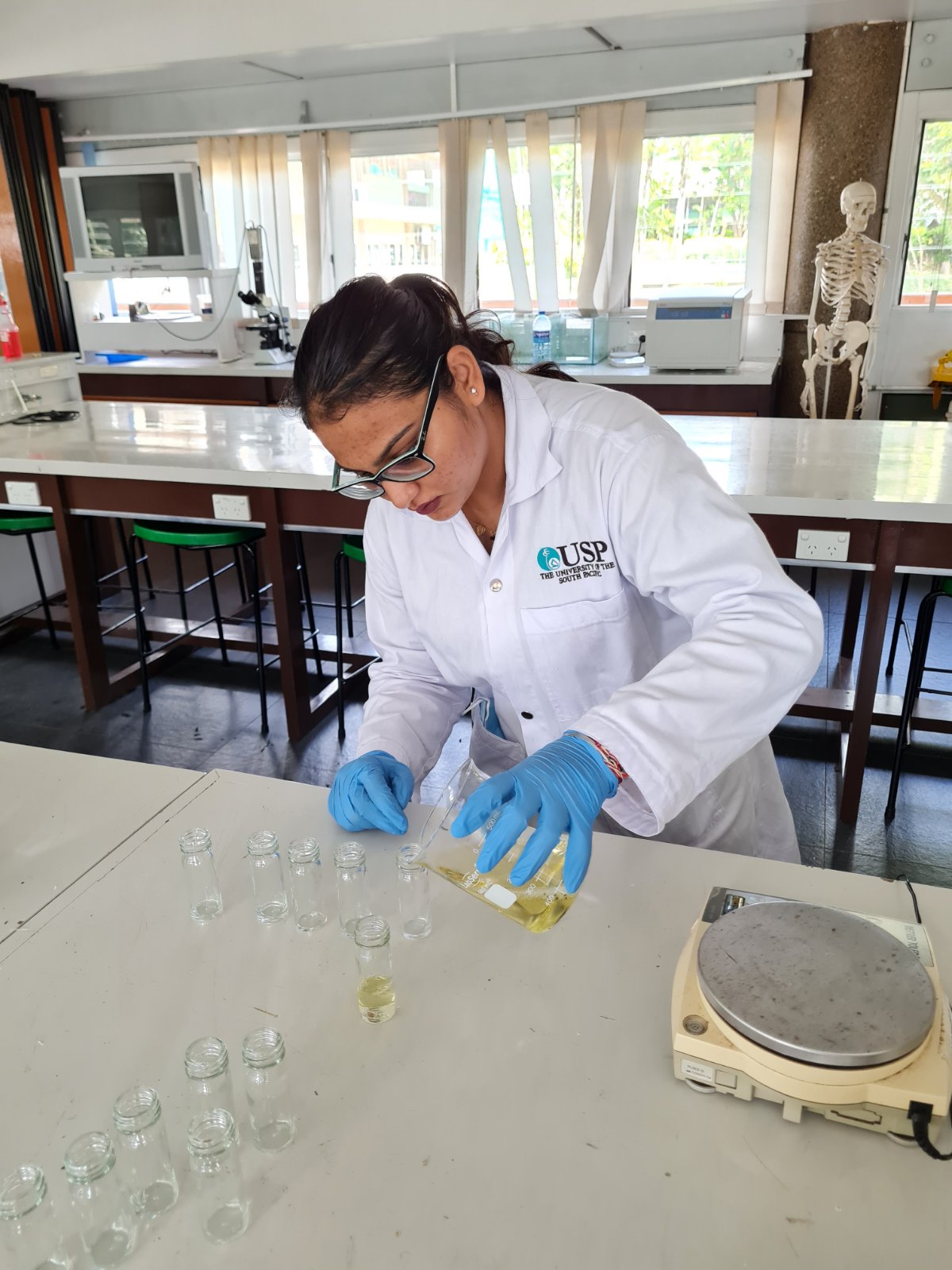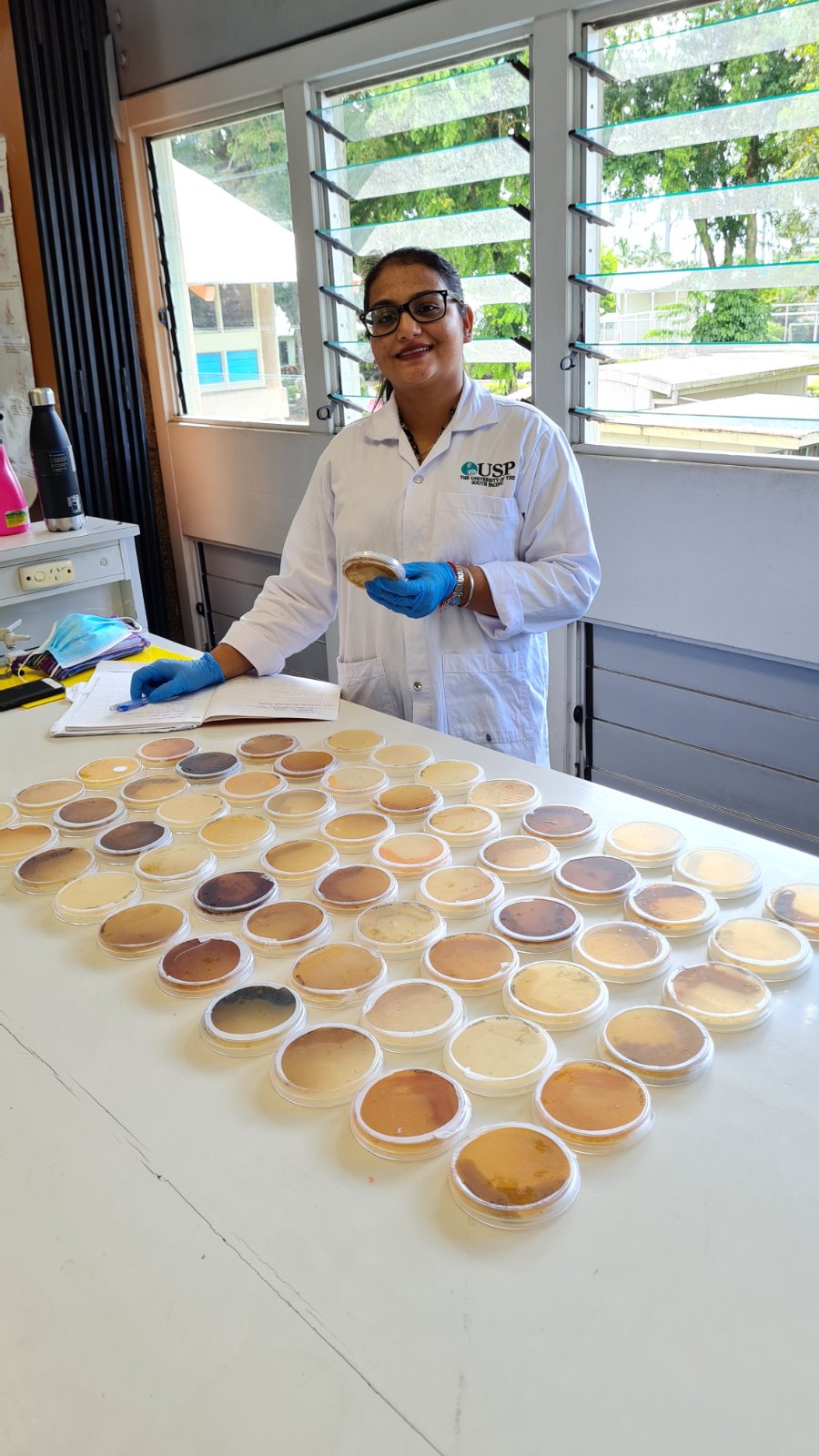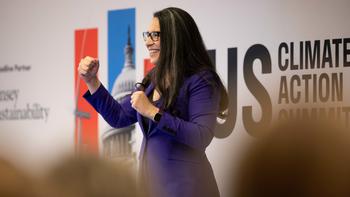The ACIAR PASS program aims to strengthen agricultural innovation systems in the Pacific by providing scholarships and academic support to postgraduate students in agriculture, forestry, and fisheries at the University of the South Pacific (USP) and Fiji National University (FNU).
The PASS program helps connect postgraduate students to the workplace by arranging a work placement as well as connecting them to an ACIAR applied research project. The Australian Centre for Pacific Islands Research (ACPIR) at the University of the Sunshine Coast (USC) also supports PASS scholars with professional development, peer-to-peer learning, and research collaboration training. This approach aims to build capacity in the Pacific region’s agricultural research system and foster deeper partnerships between the region and Australia.
One such student benefitting from the PASS scholarship is Fijian national Ms Nirma Nadan. Ms Nadan is currently a master’s candidate at the USP with research interests in microbiology and food security.
Ms Nadan was awarded the scholarship in March 2021. She is one of the ten women scholars from the seventeen students in the cohort.

Her research focuses on Actinobacteria as a bio-control approach for managing bacterial wilt in tomatoes.
‘Vegetables are an important part of our diet and a major source of income - whether it is a commercial farmer or a small-scale backyard farmer. During the height of the pandemic, many Fijians lost their jobs but moved to farming as a livelihood,’ she said.
Ms Nadan added that tomatoes are relatively easy to grow and are a rich source of nutrients such as potassium vitamins B and E, among others.
‘Many of these cash crops and vegetables are vulnerable to pests and diseases. Bacterial wilt is one such plant disease that affects tomato plants. My research is working towards an eco-friendly solution to managing the disease,’ she added.
Currently, Ms Nadan is at the early stages of her research and working on isolating, purifying, and preserving the actinobacterial strains. She plans to submit her thesis later this year.
‘Initial results of my research showed that plant disease management using biocontrol is vital to protecting crops from damages and securing farmers’ incomes. Many studies are also indicating the Actinobacteria (the biocontrol focus in this study) can also be used to promote plant growth.’
‘Biocontrol like Actinobacteria not only protects the plants but can increase the quality and yield. All of these contribute to strengthening food security and building resilience of the sector to shocks like climate change and the ongoing pandemic,’ she added.
ACIAR Regional Manager for the Pacific, Ms Mai Alagcan, added that ACIAR is proud to support the PASS program as it creates greater opportunities and access to young women in the Pacific to pursue a career in agriculture science and research.
‘The PASS program is empowering Pacific communities to build their research capacity to meet emerging agricultural challenges in the region. We are proud to support the academic journey of women like Nirma.’

‘Capacity building is one of the joint priorities we identified with partner countries and is a pillar of the ACIAR program for the Pacific,’ she added.
‘Research topics such as the one Nirma is currently pursuing not only contributes to the body of science in pest disease and management, but offers science-based solutions to real-life problems of smallholder farmers in Fiji and the region.’
Program Coordinator Dr Linda Wess of USC’s ACPIR has been working with the Pacific Scholars, including Nirma, since early 2021 and is incredibly proud of the resilience shown by the scholars throughout the last year as the global pandemic has impacted research projects. ACPIR and the PASS team have welcomed the scholars as members, inviting them to participate in Pacific Seminars, Skills Sessions, and targeted capacity-building activities, including Share Your Research presentation workshops and the job ready program.
‘Nirma’s journey illustrates that empowering young women in the Pacific will benefit the agricultural system overall in the future,’ Dr Wess added.
Due to the ongoing pandemic, Ms Nadan added that the road to completing her masters has not been easy, especially in completing field and laboratory work.
‘I would like to thank ACIAR and the PASS program team for being a great support system. At the height of the pandemic, my research was delayed due to lockdowns and other social distancing measures; however, ACIAR and the PASS team kept me motivated by regular check-ins and allowed me access to skills sessions and seminars.’
‘The student work placement program was an excellent initiative of the PASS program. I did my workplace attachment at the Ministry of Agriculture- Koronivia Research Station. Through this opportunity, I gained on-the-job experience and direct engagement with the agricultural ministry,’ she added.

Ms Nadan’s advice to other young women and girls with a keen interest in science is not to give up on their dreams.
‘The world of science is not limited by gender; it is a world of endless possibilities and is accessible to women and girls. It is time we push to break the glass ceiling in the world of science as we have done in all other areas,’ she added.








